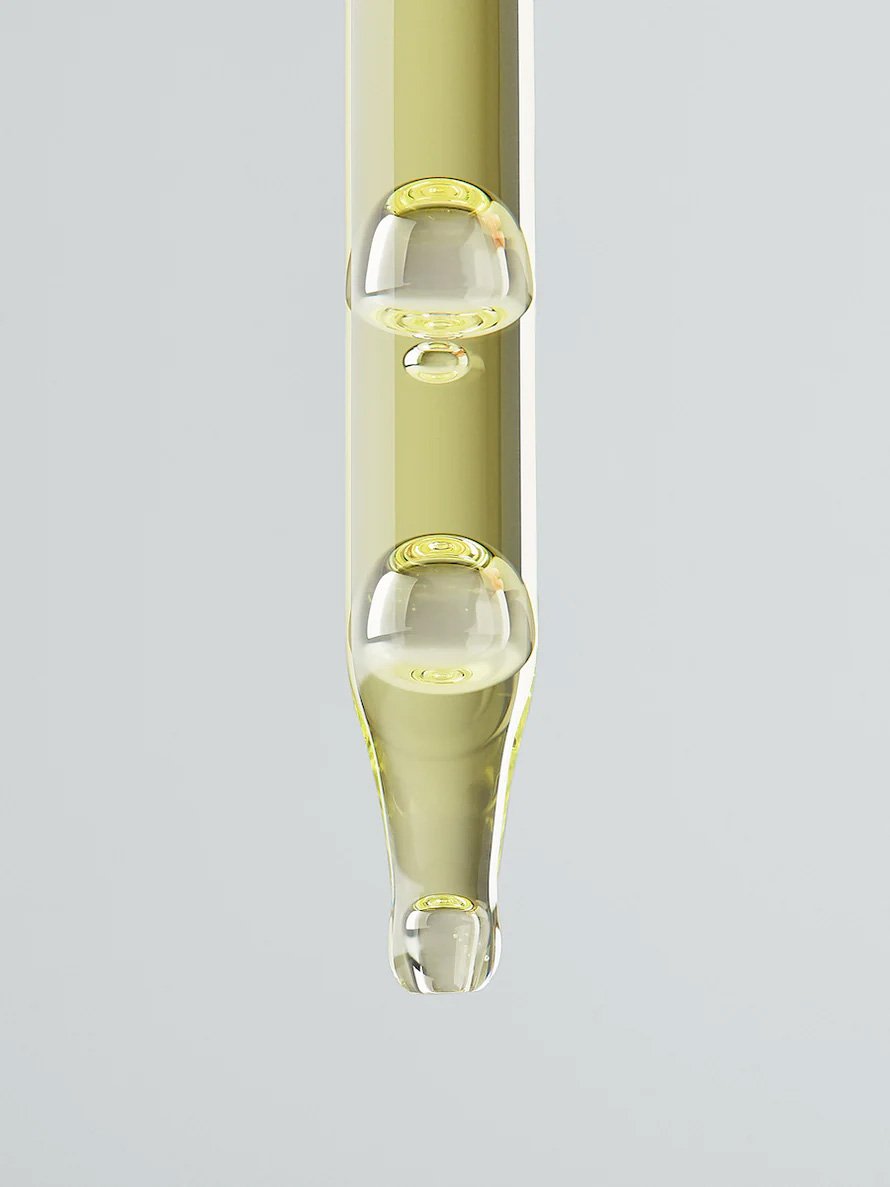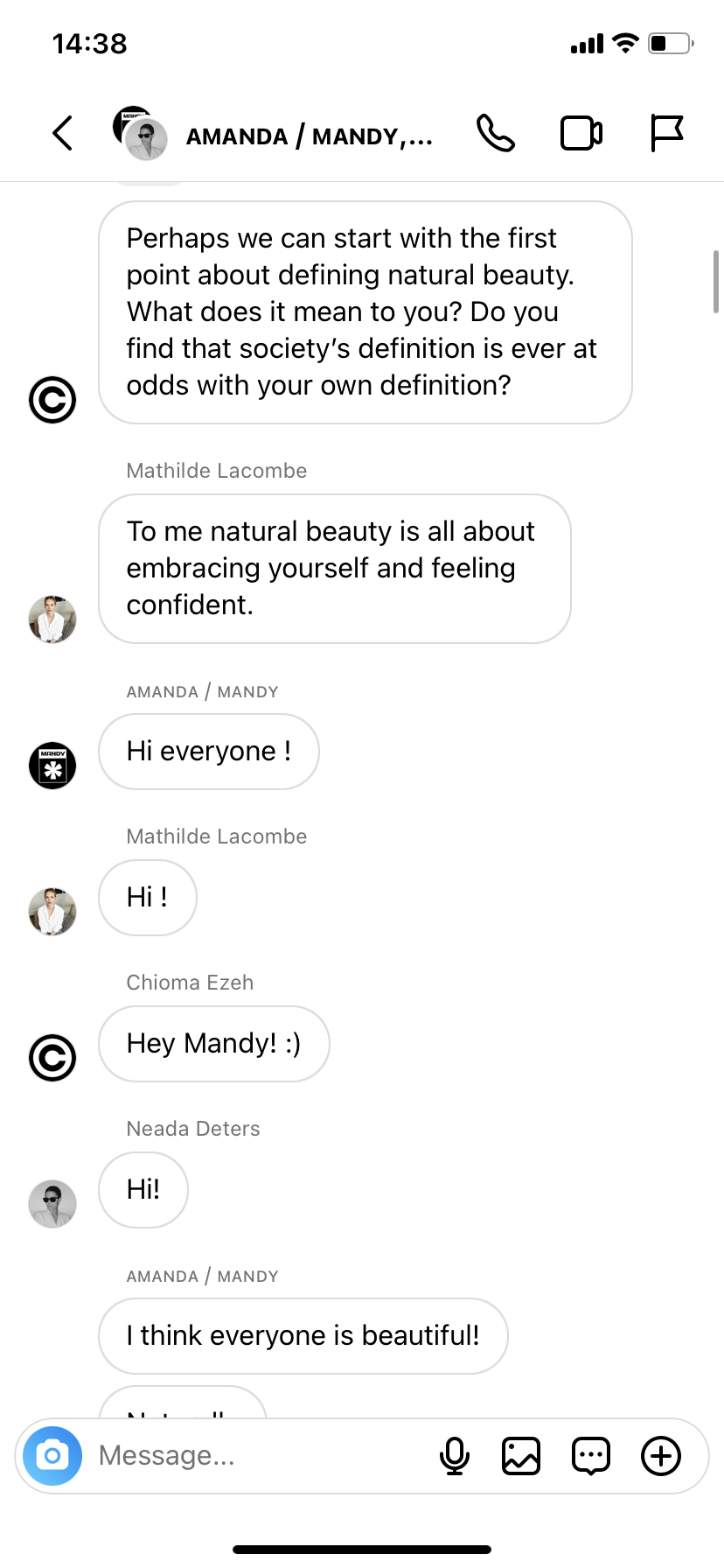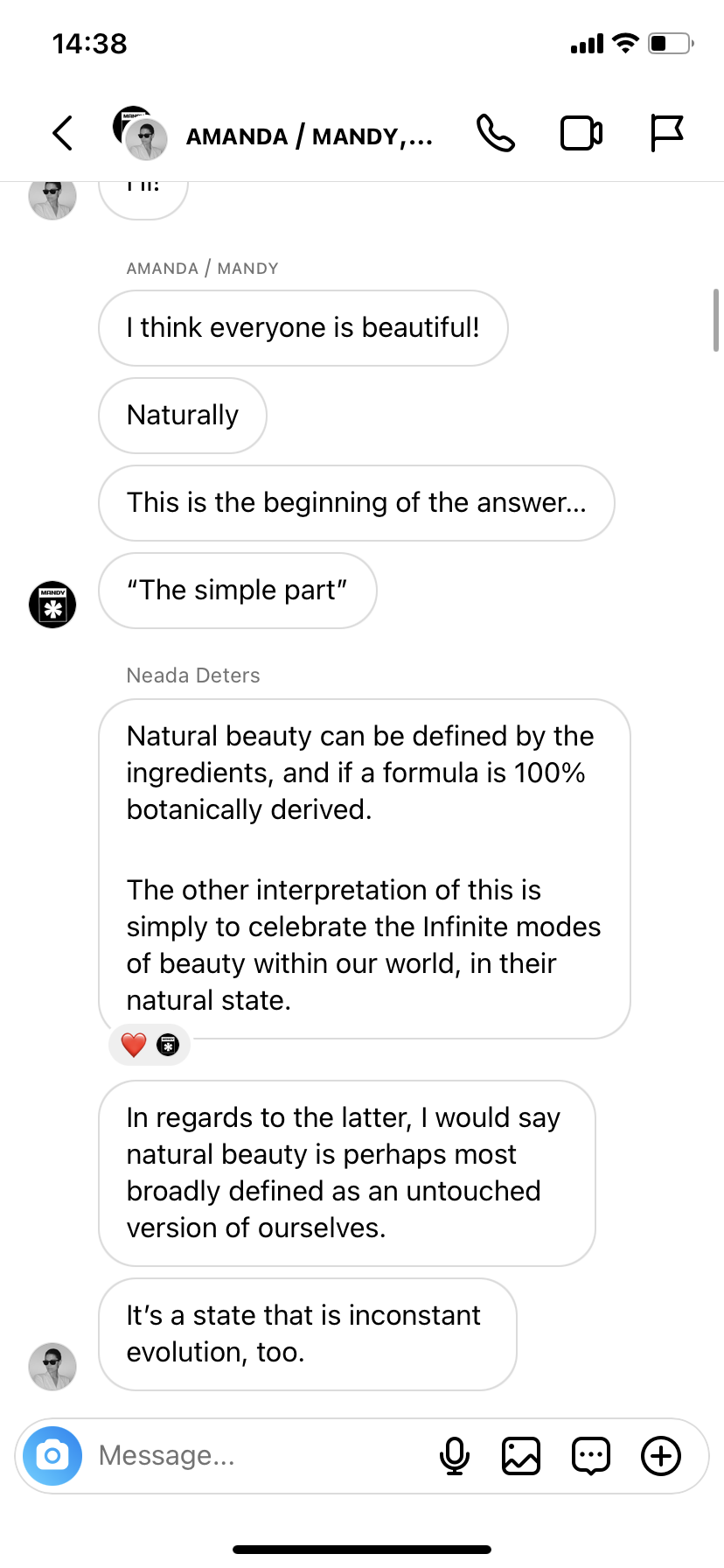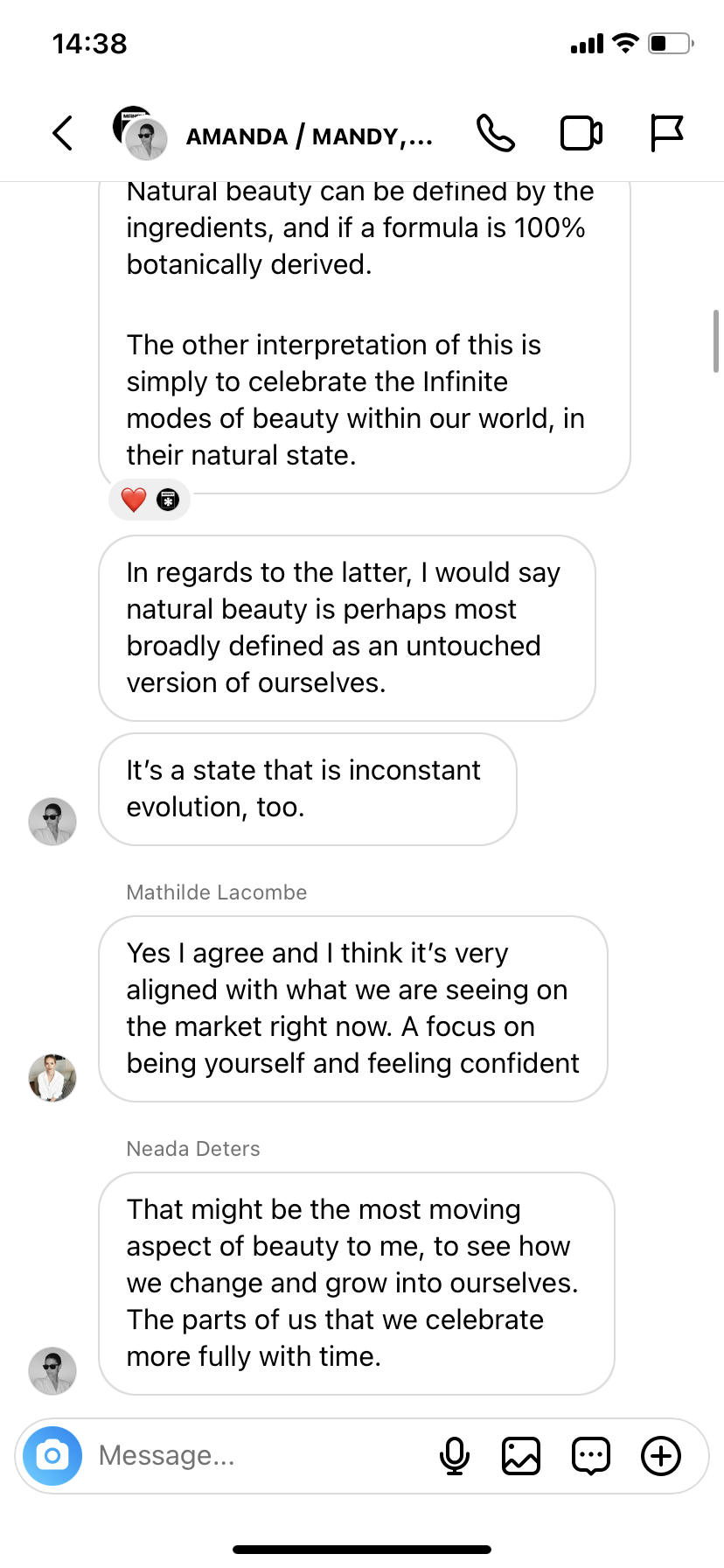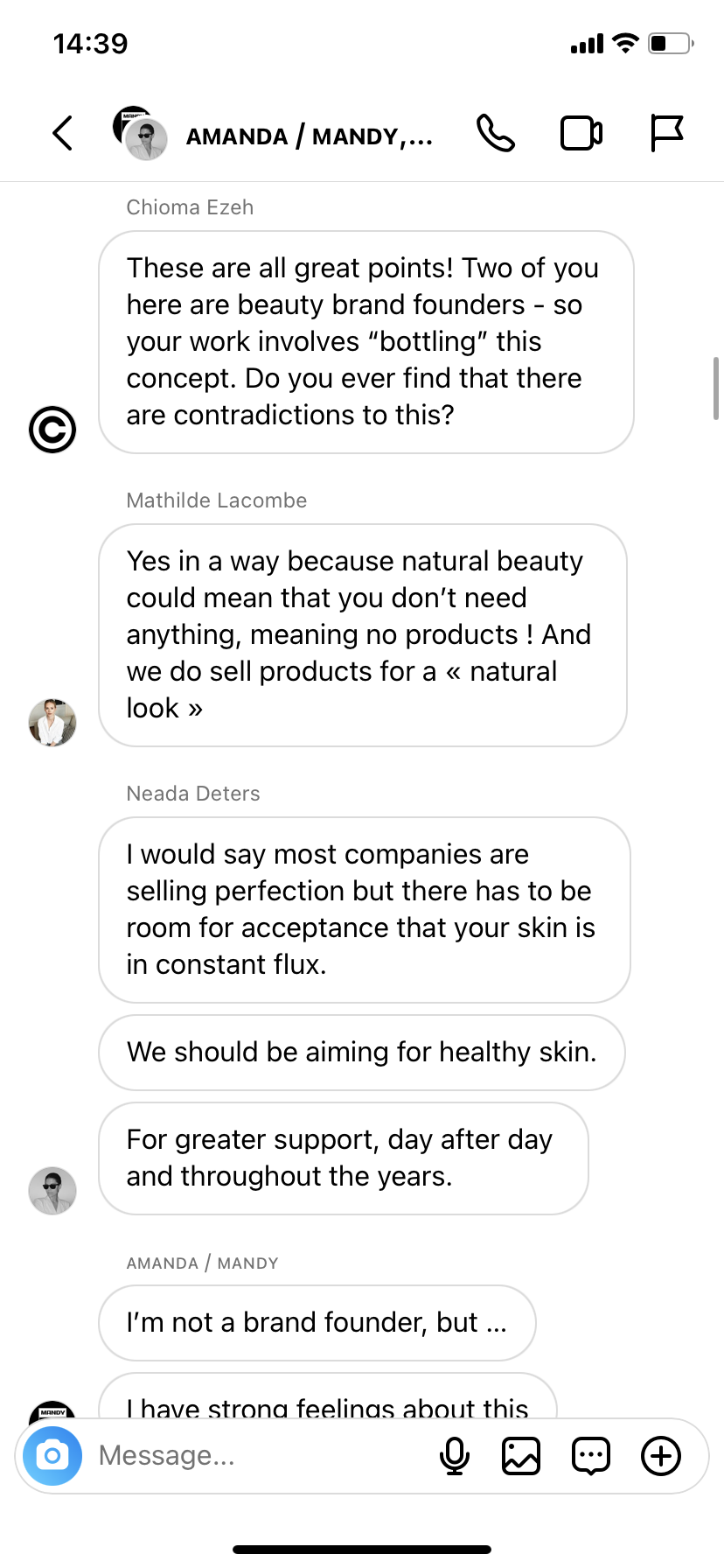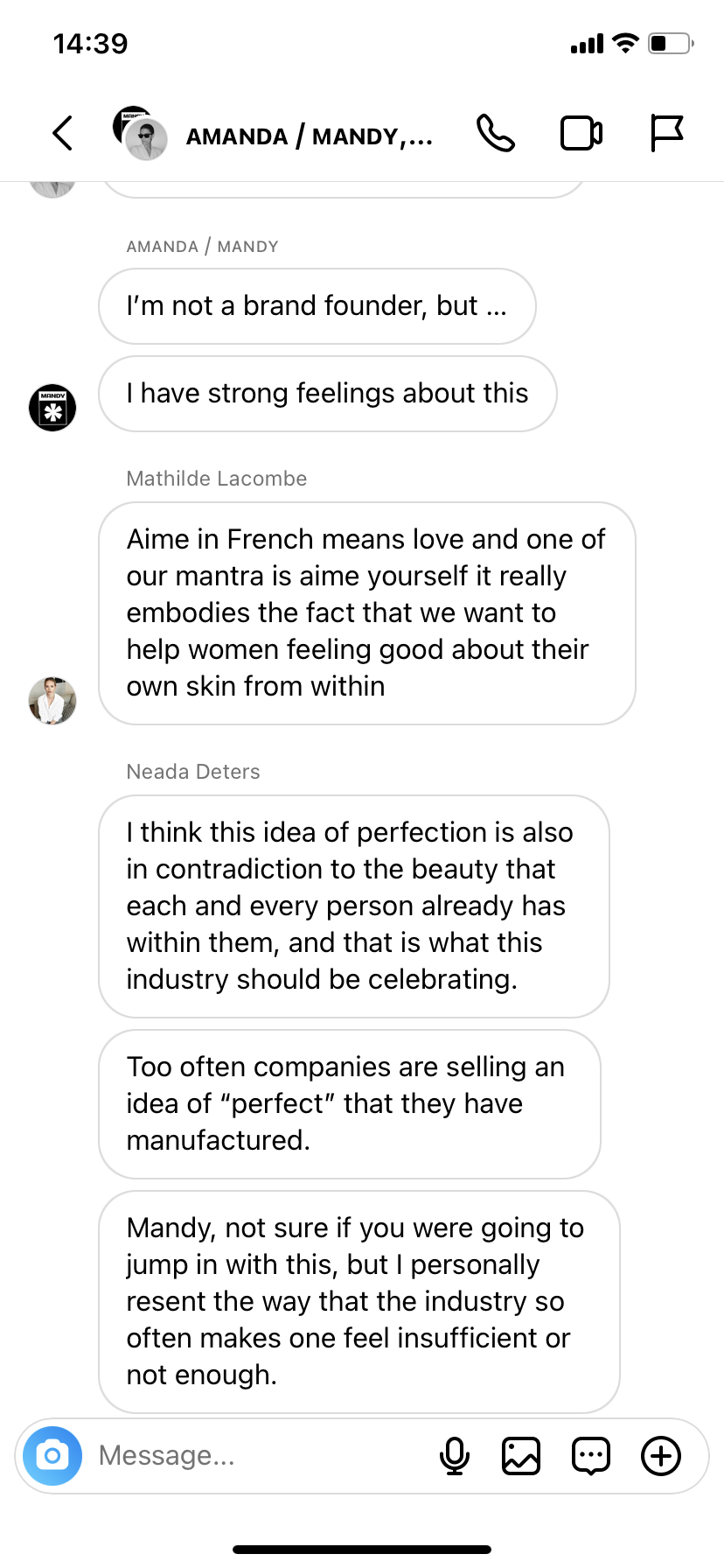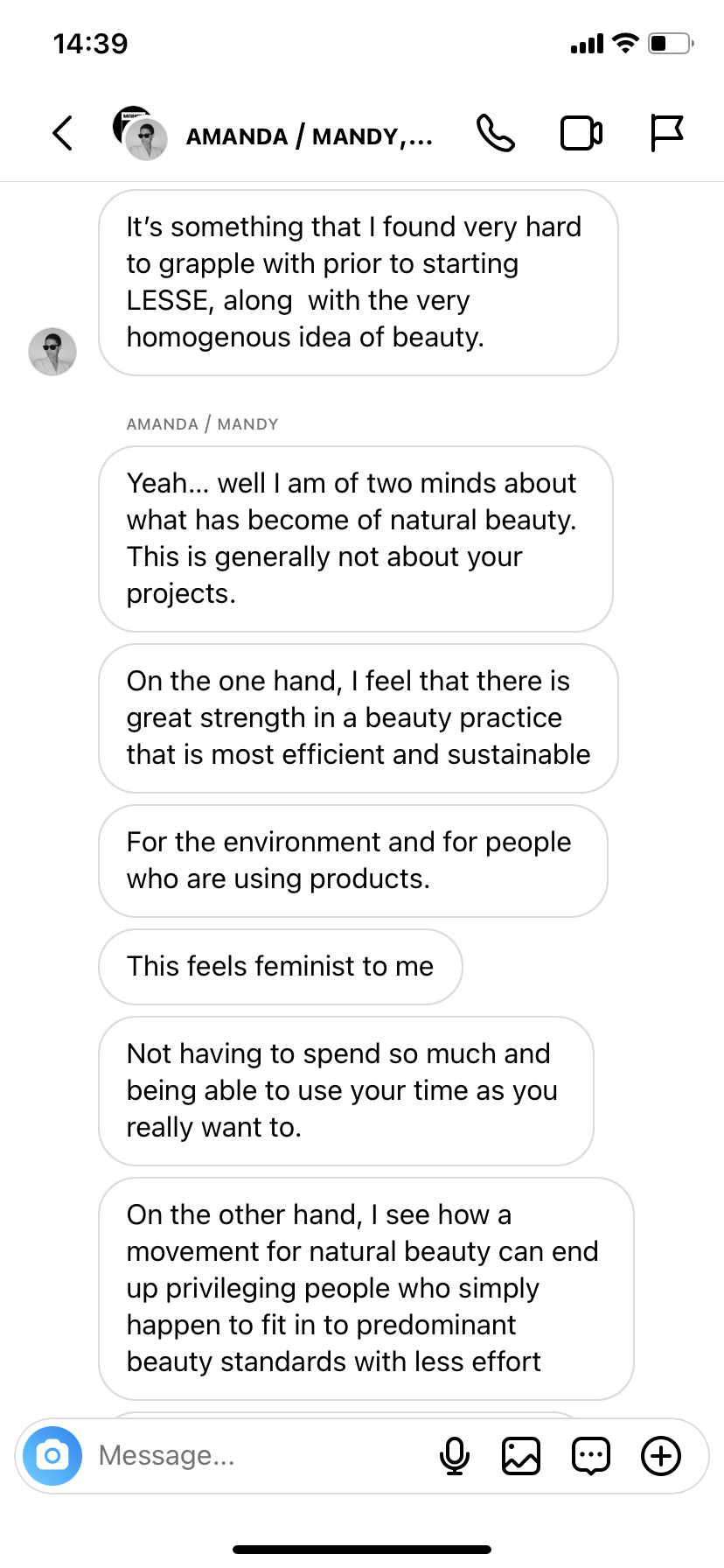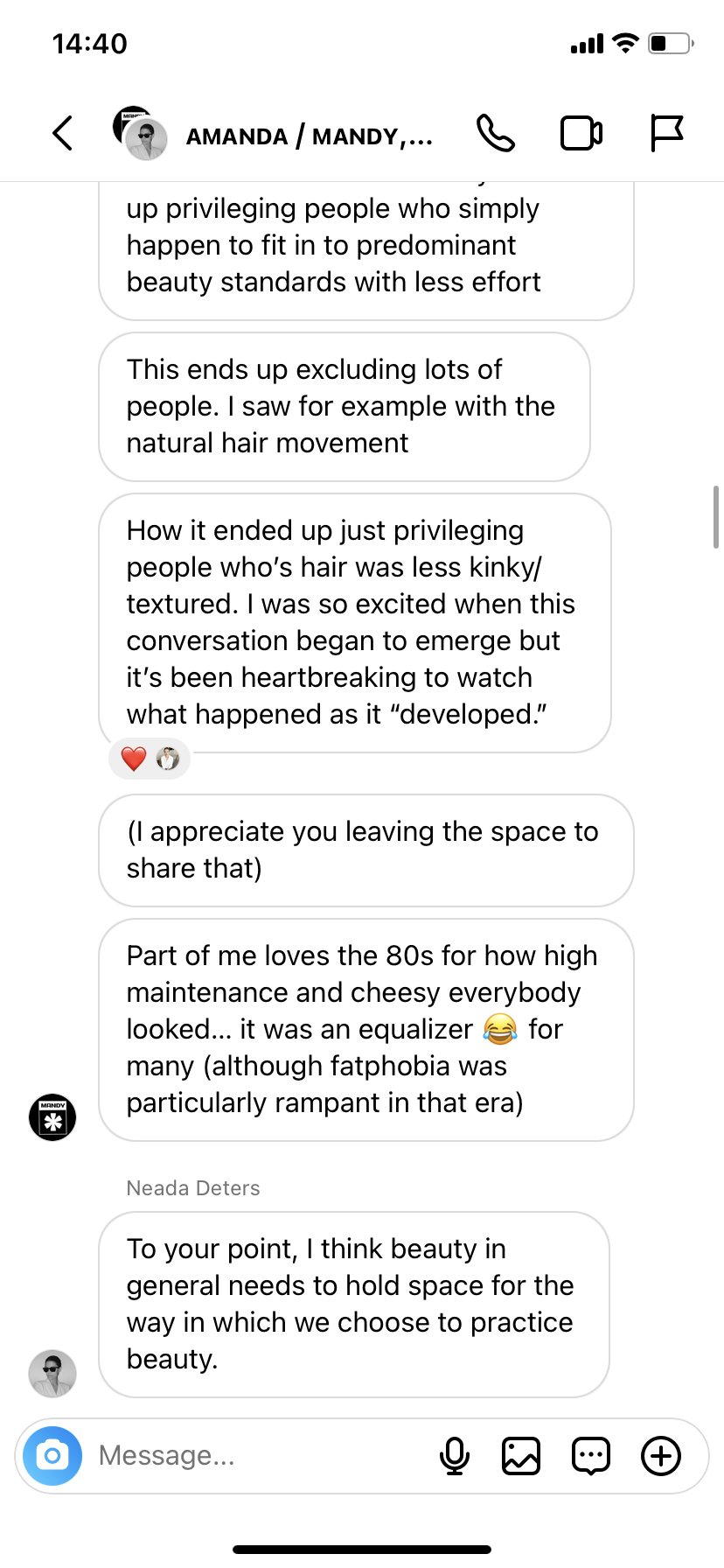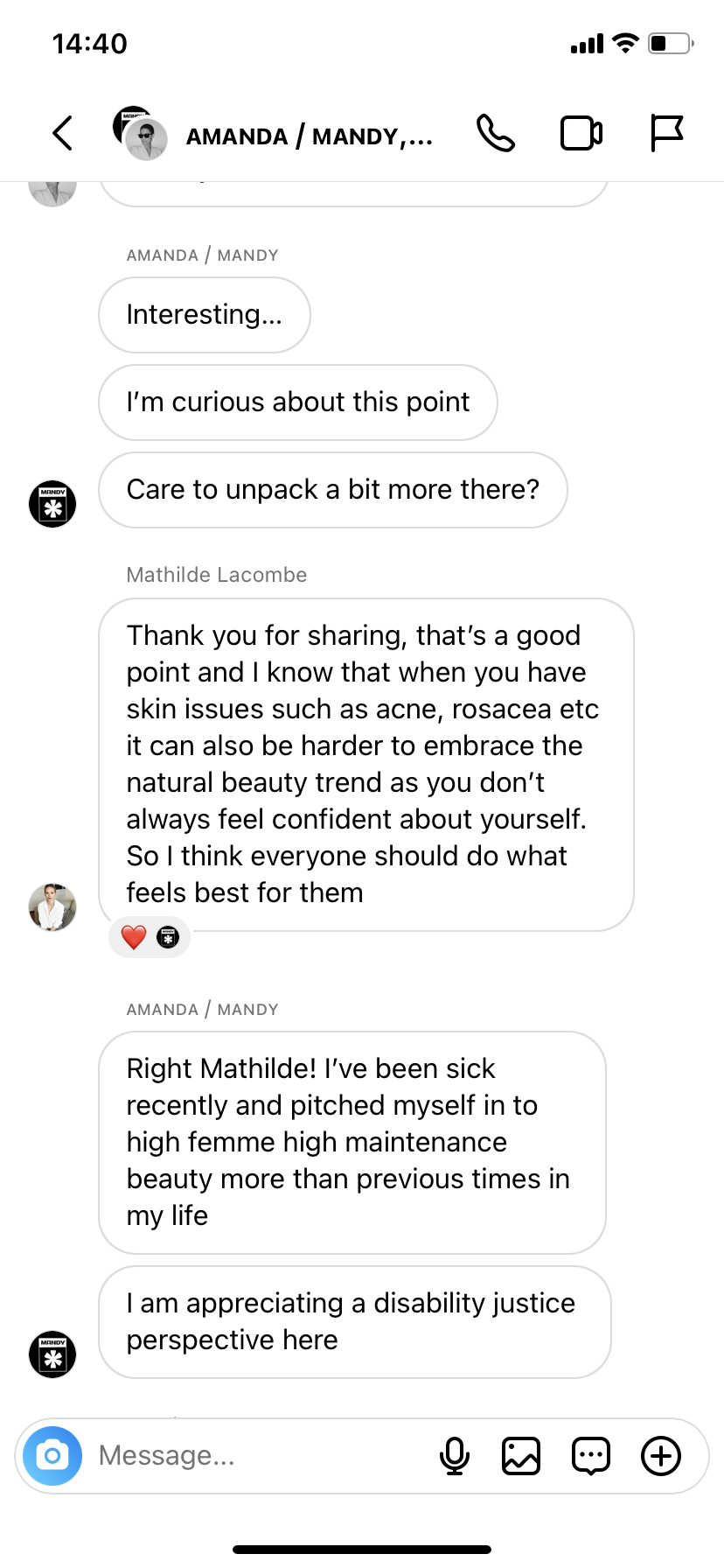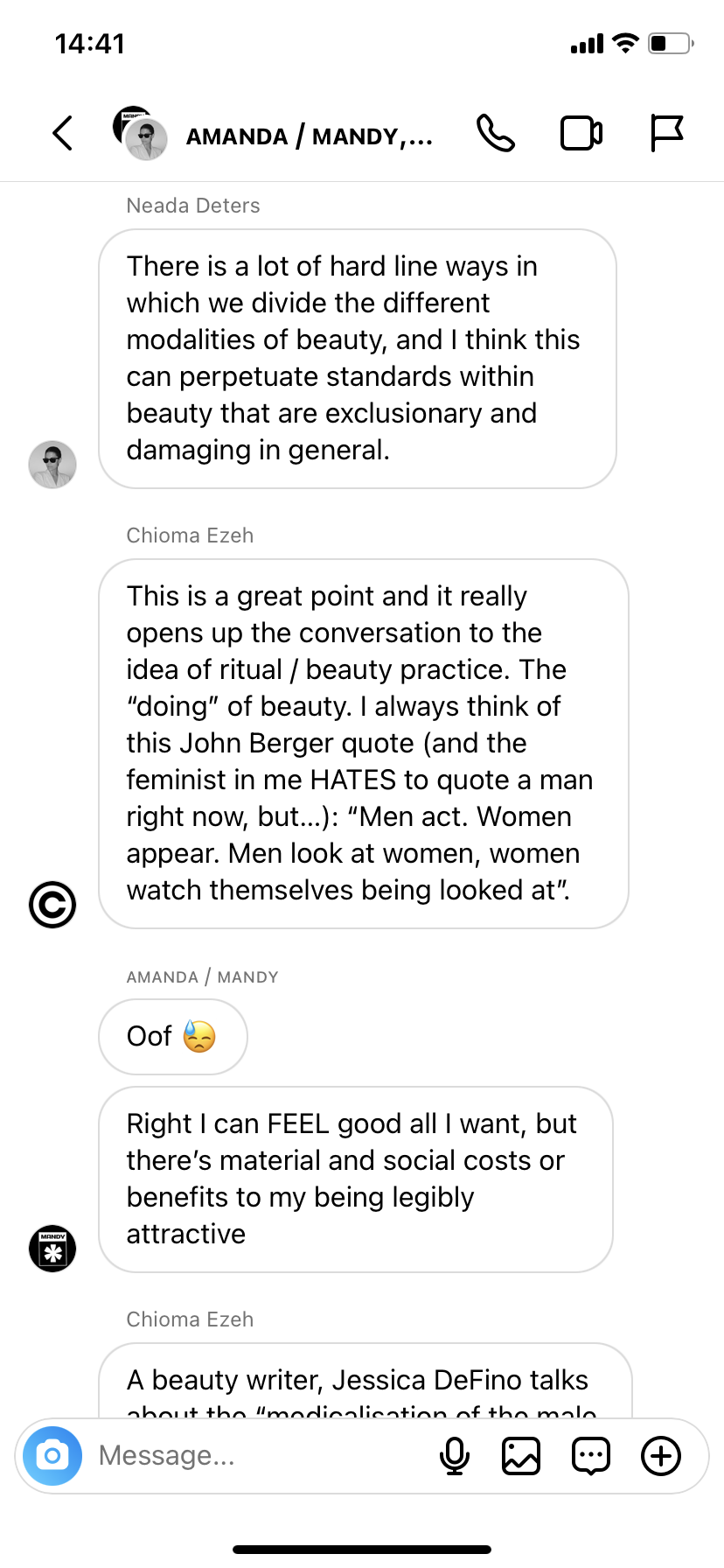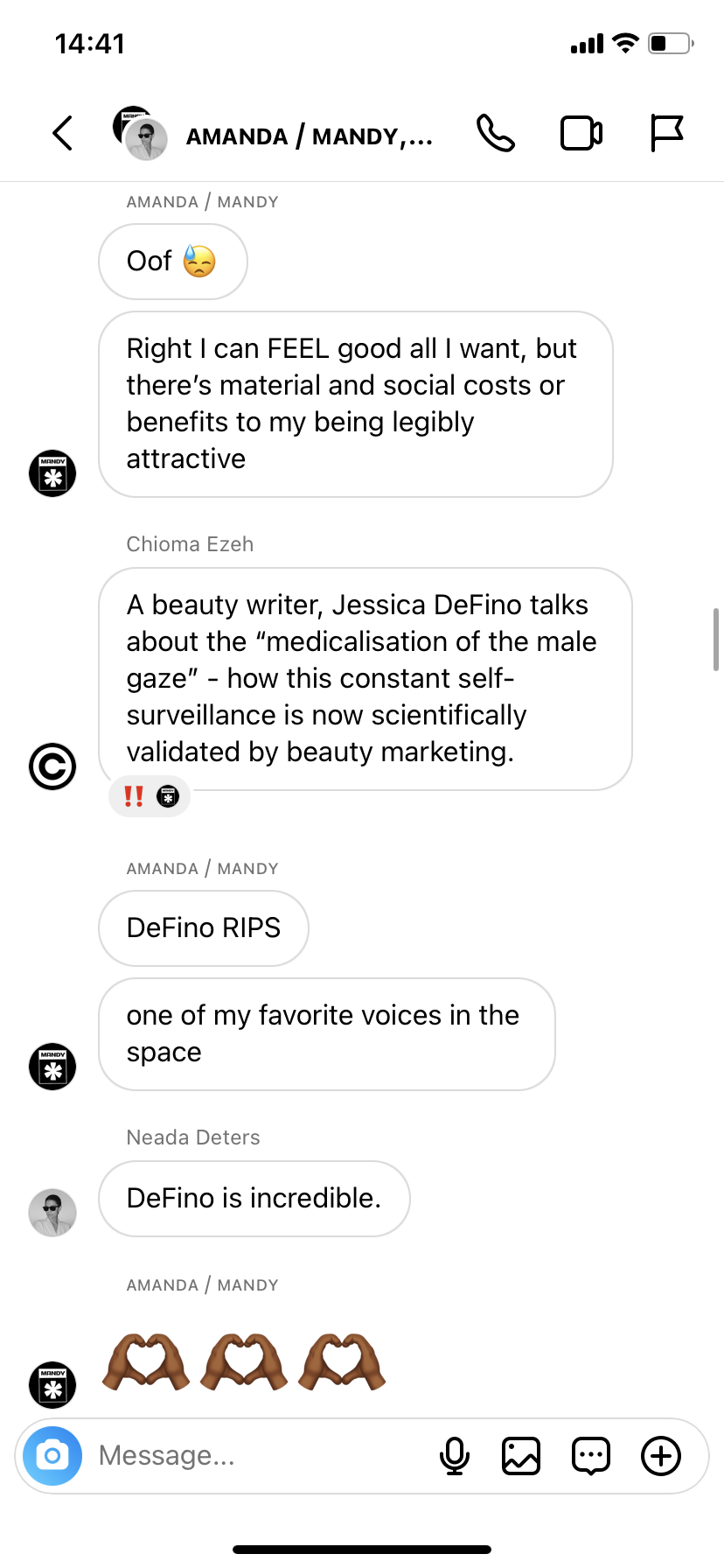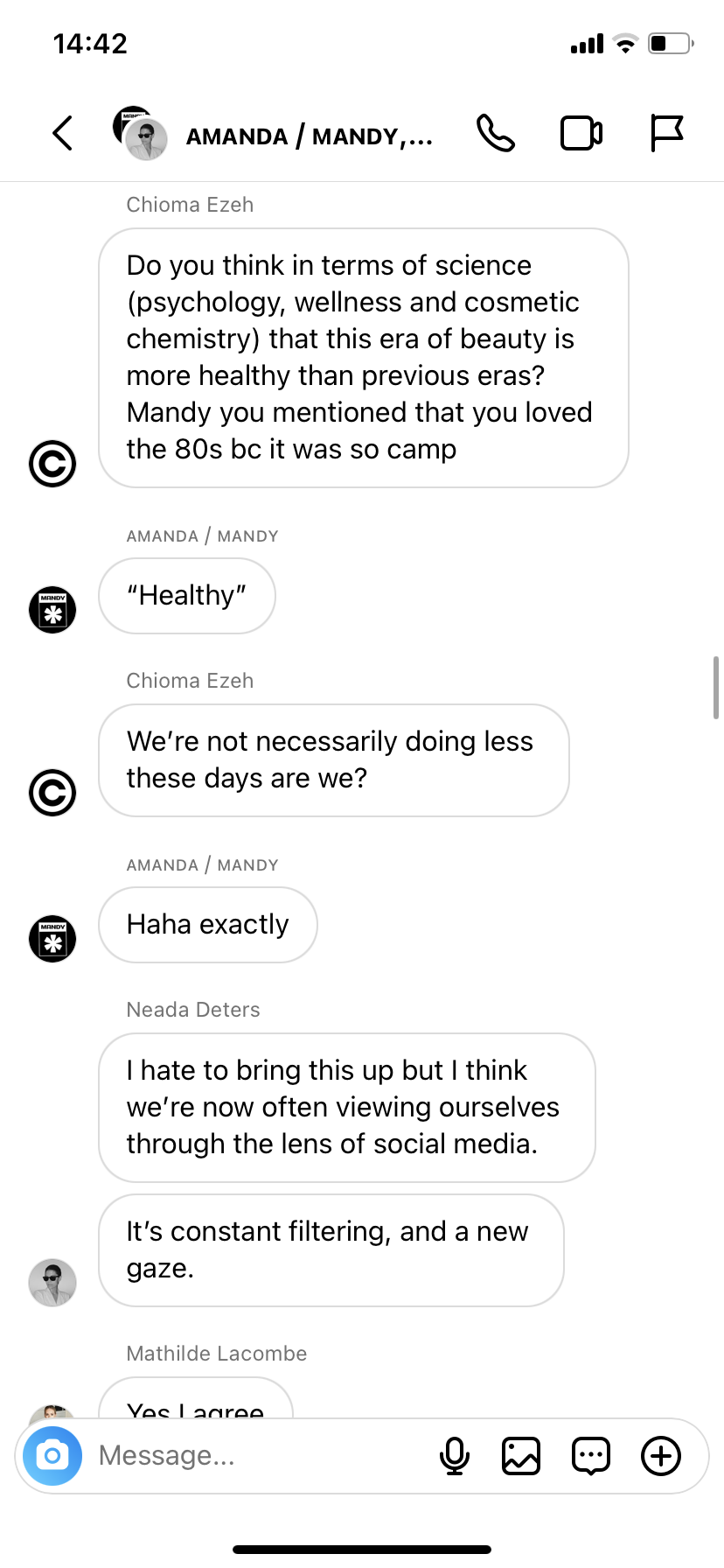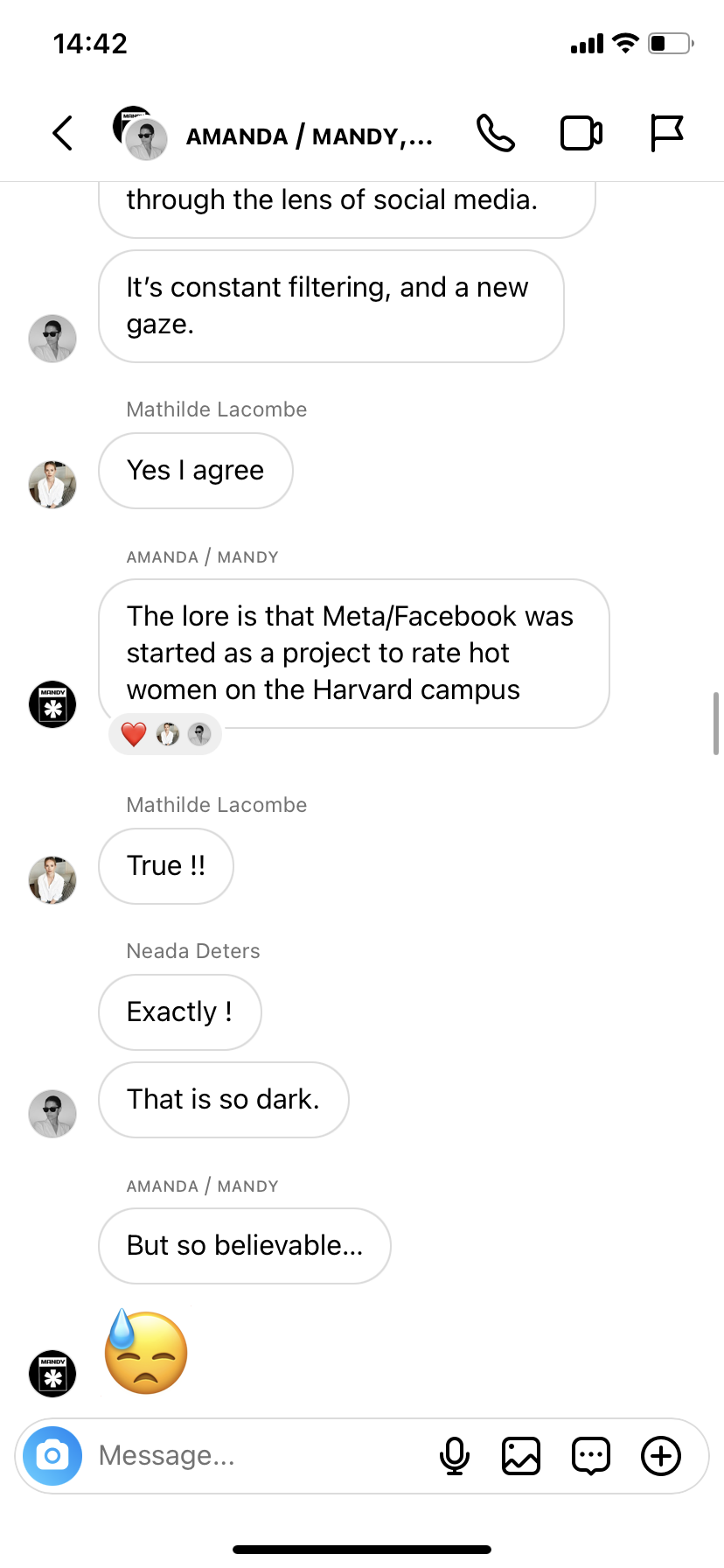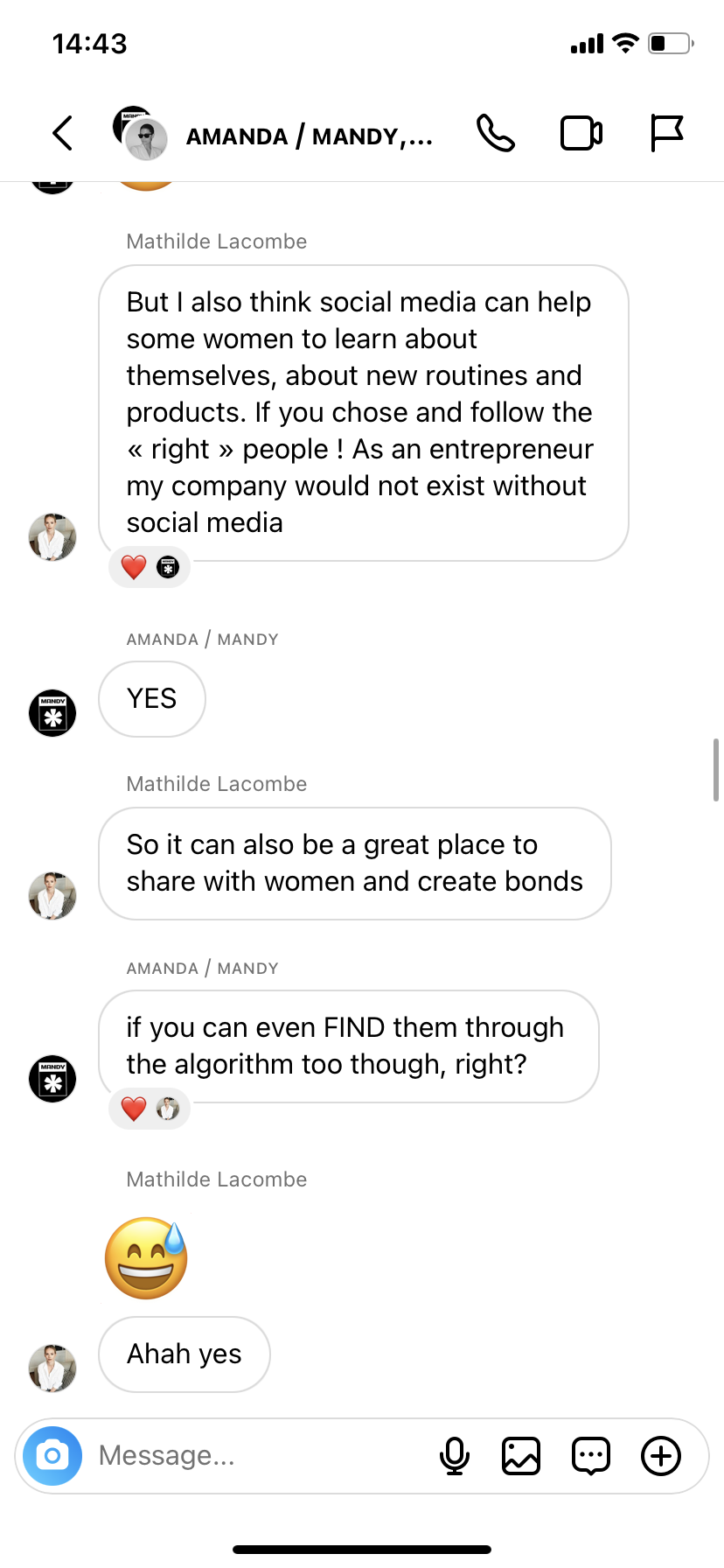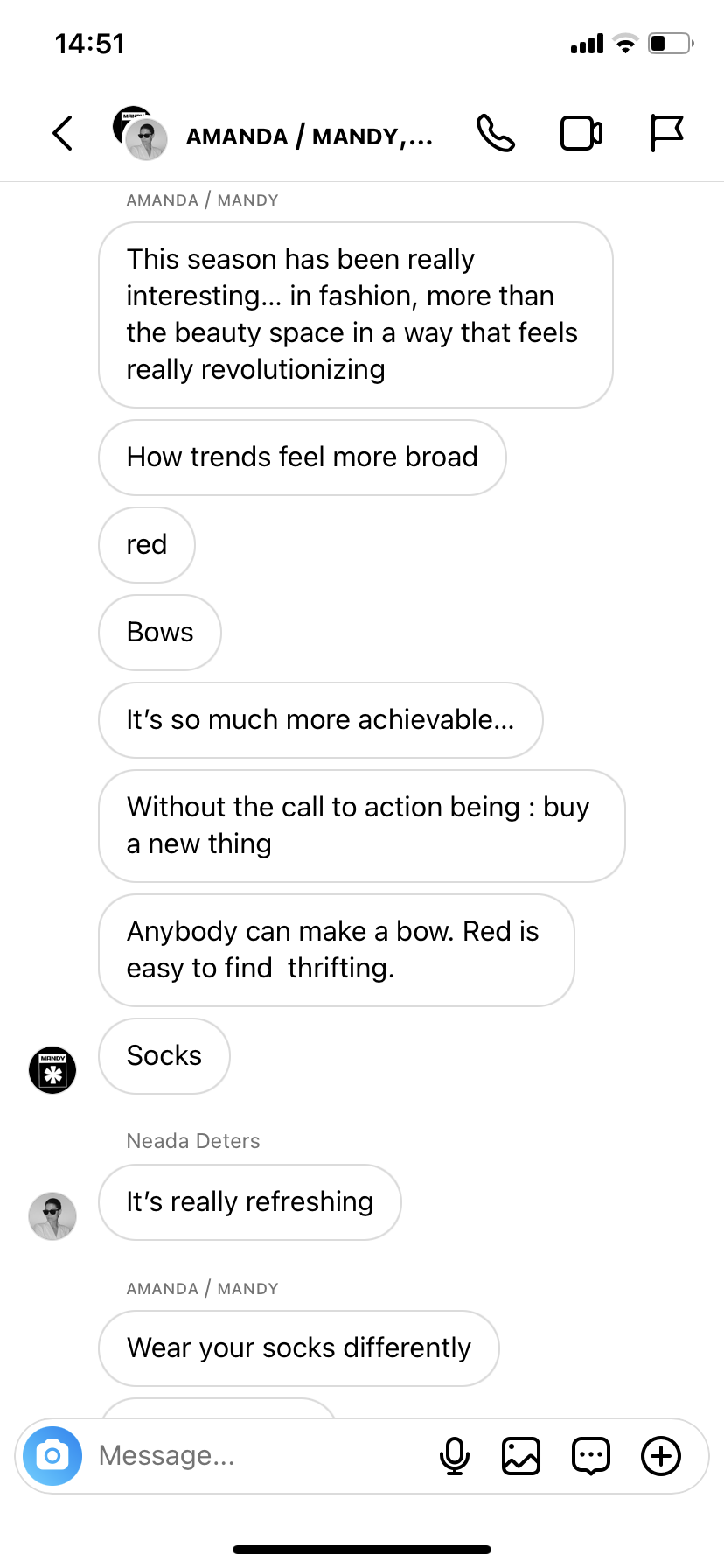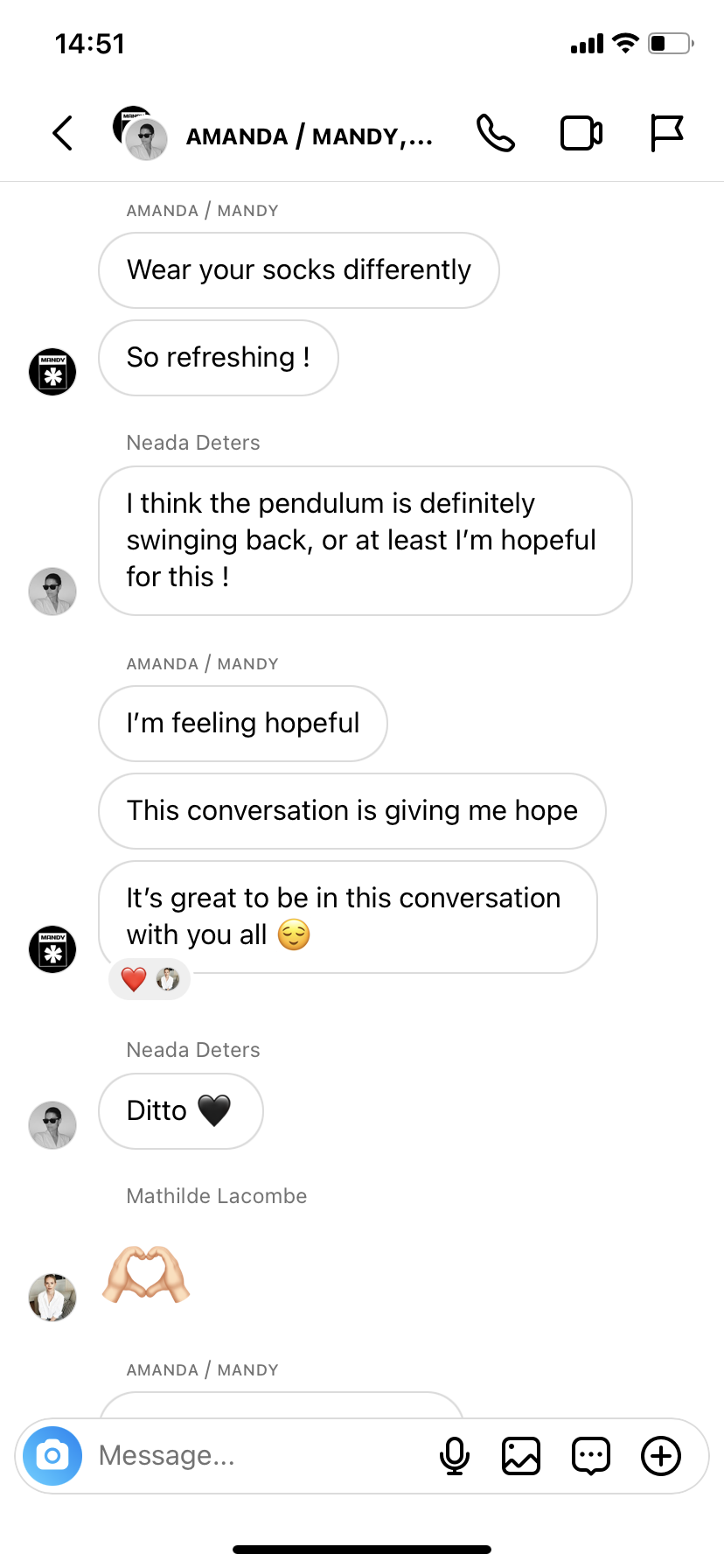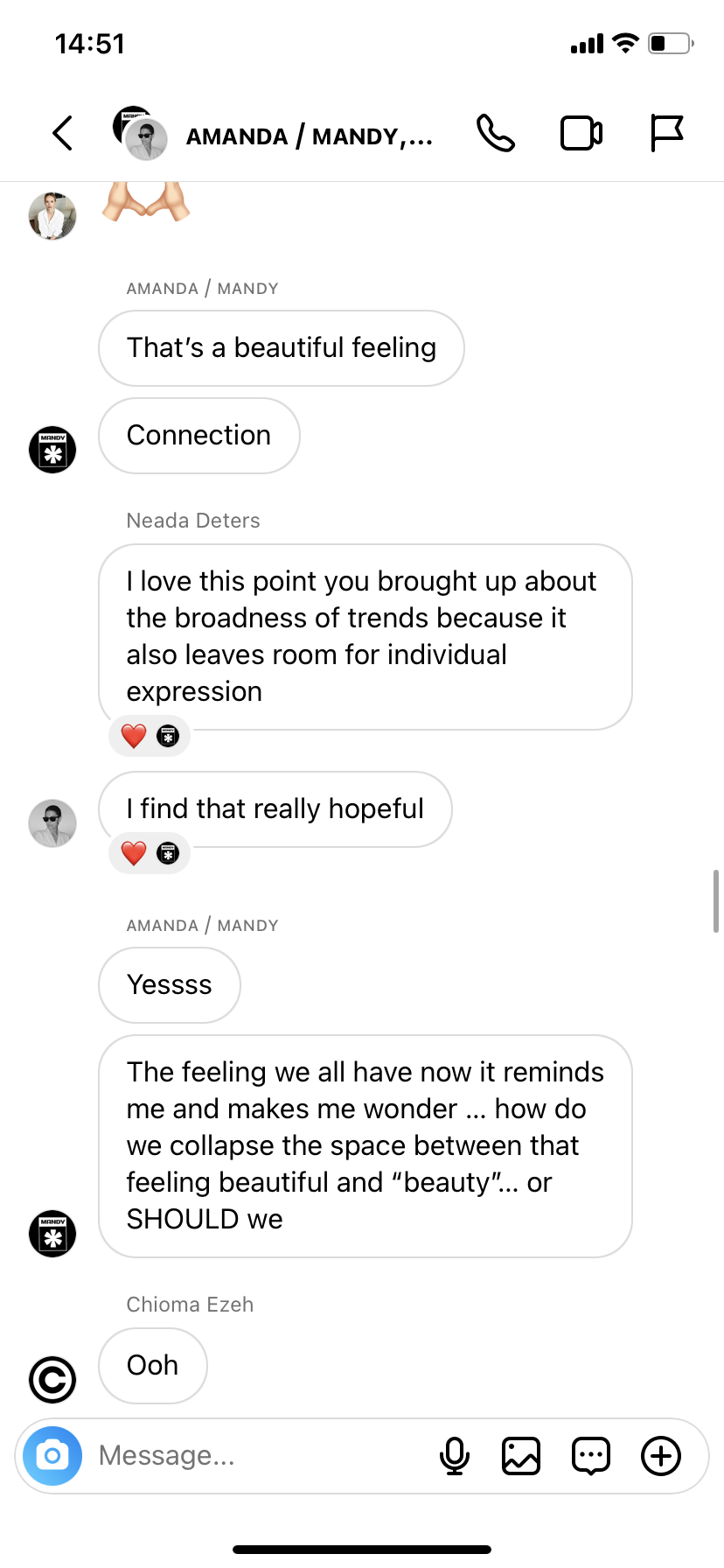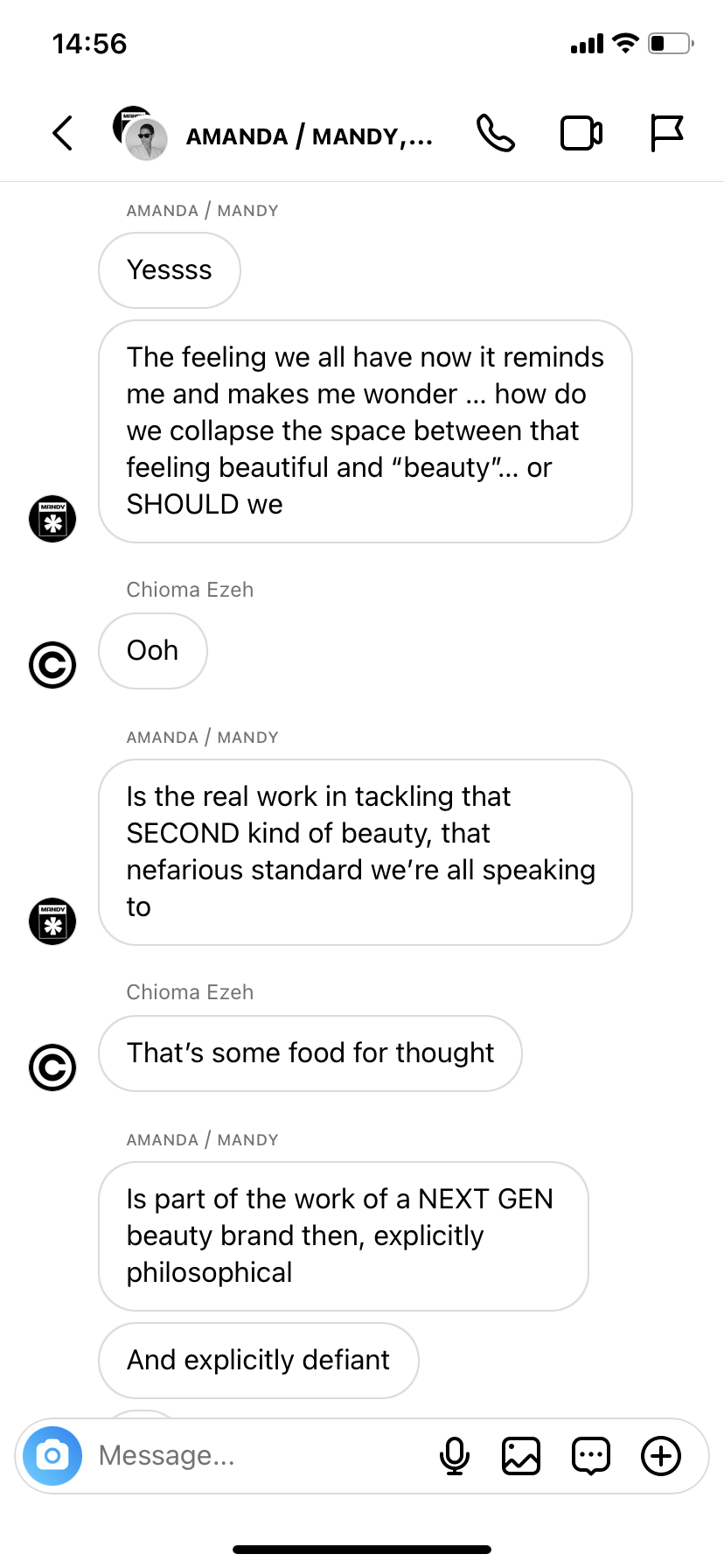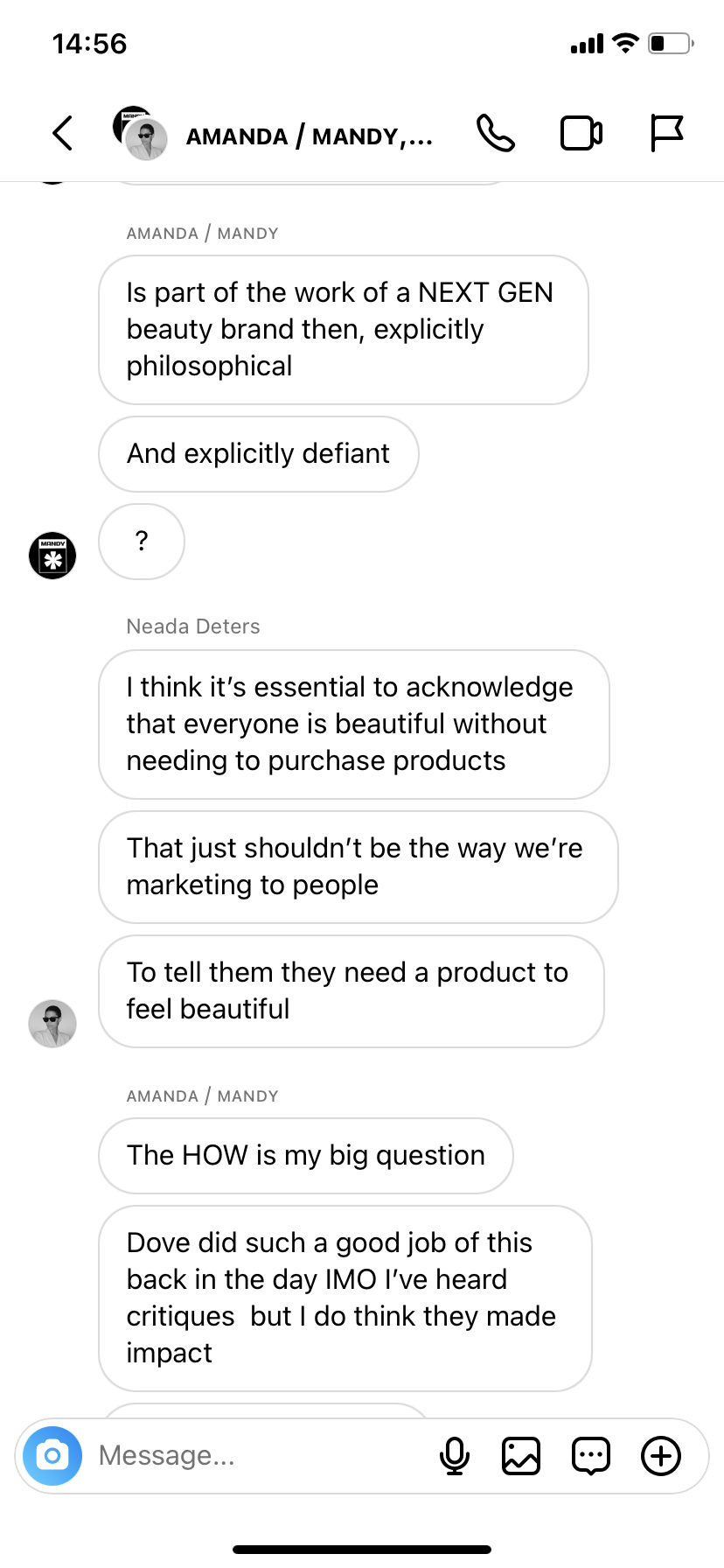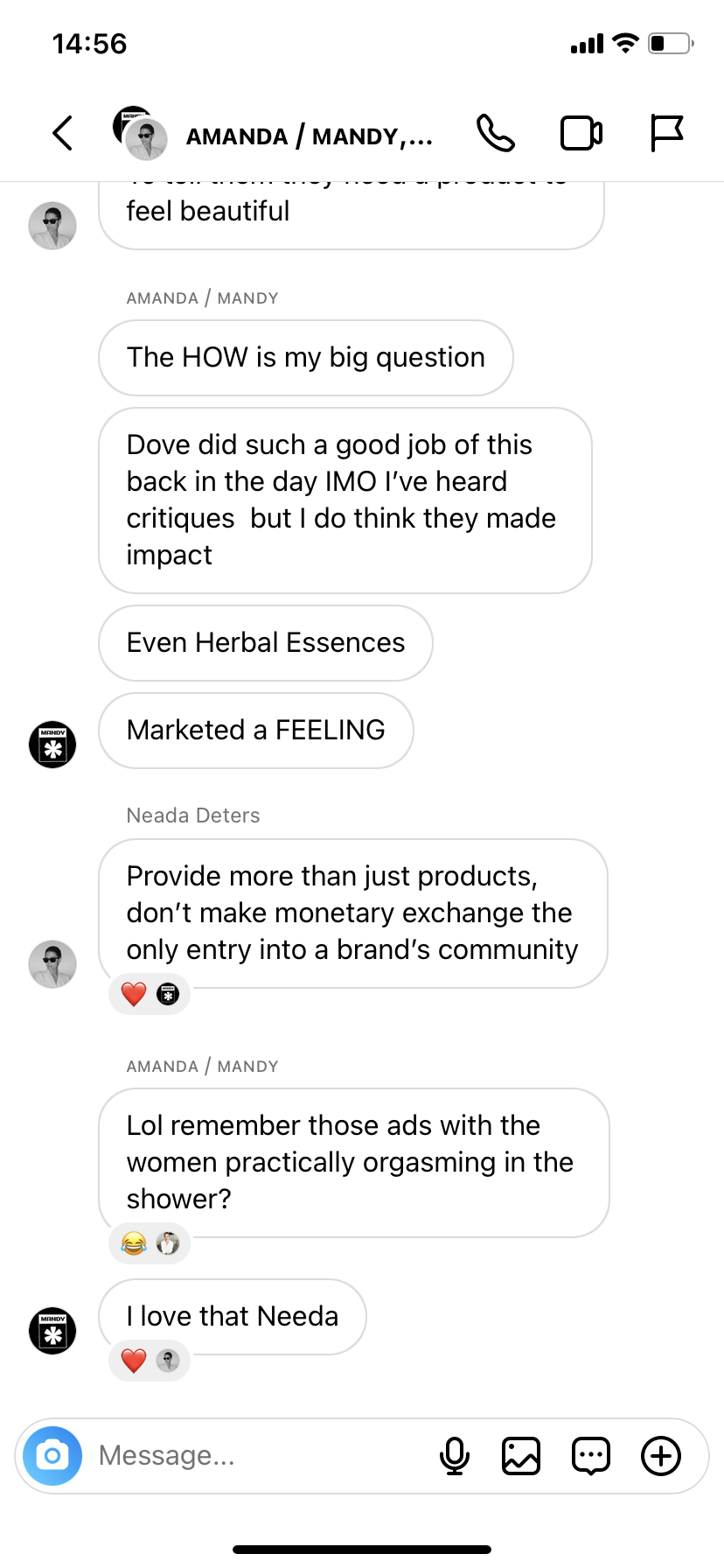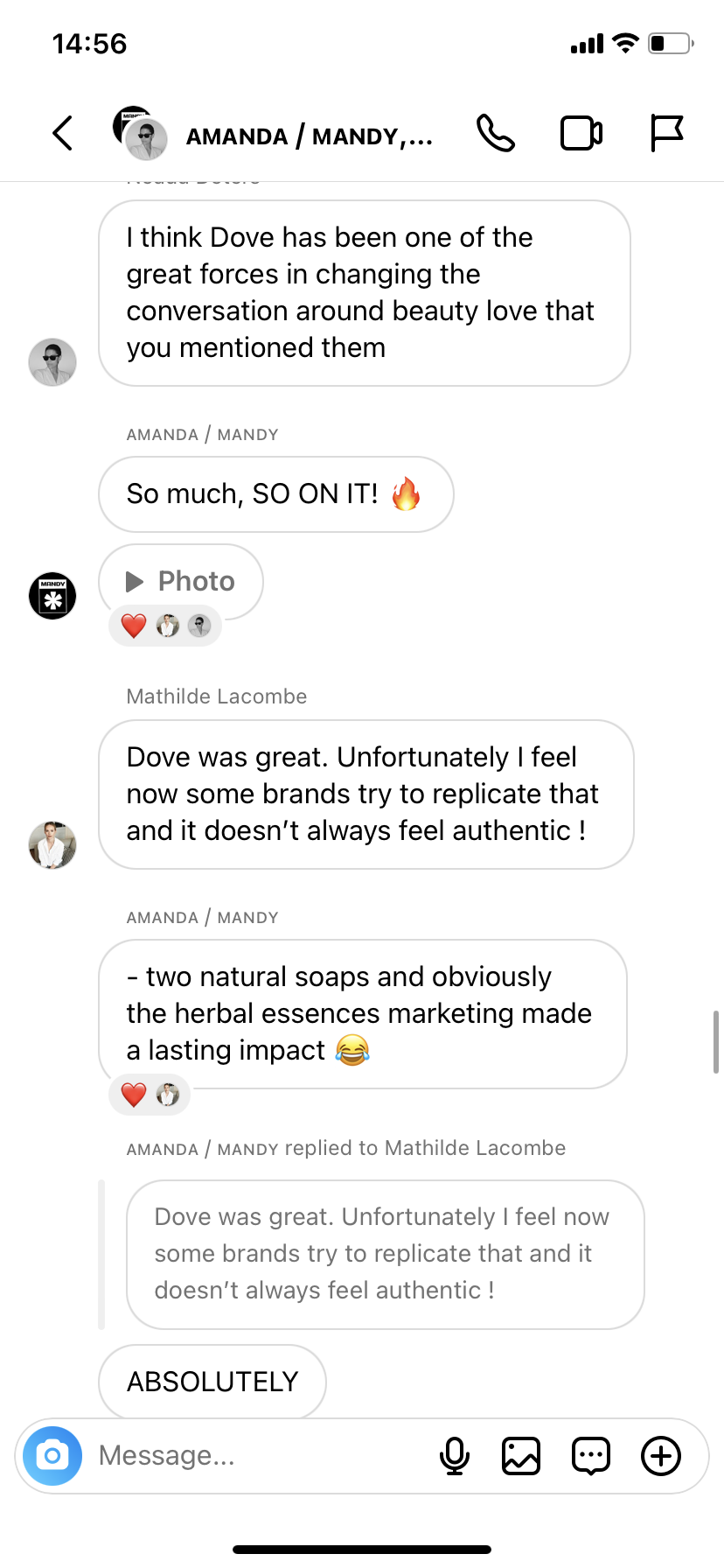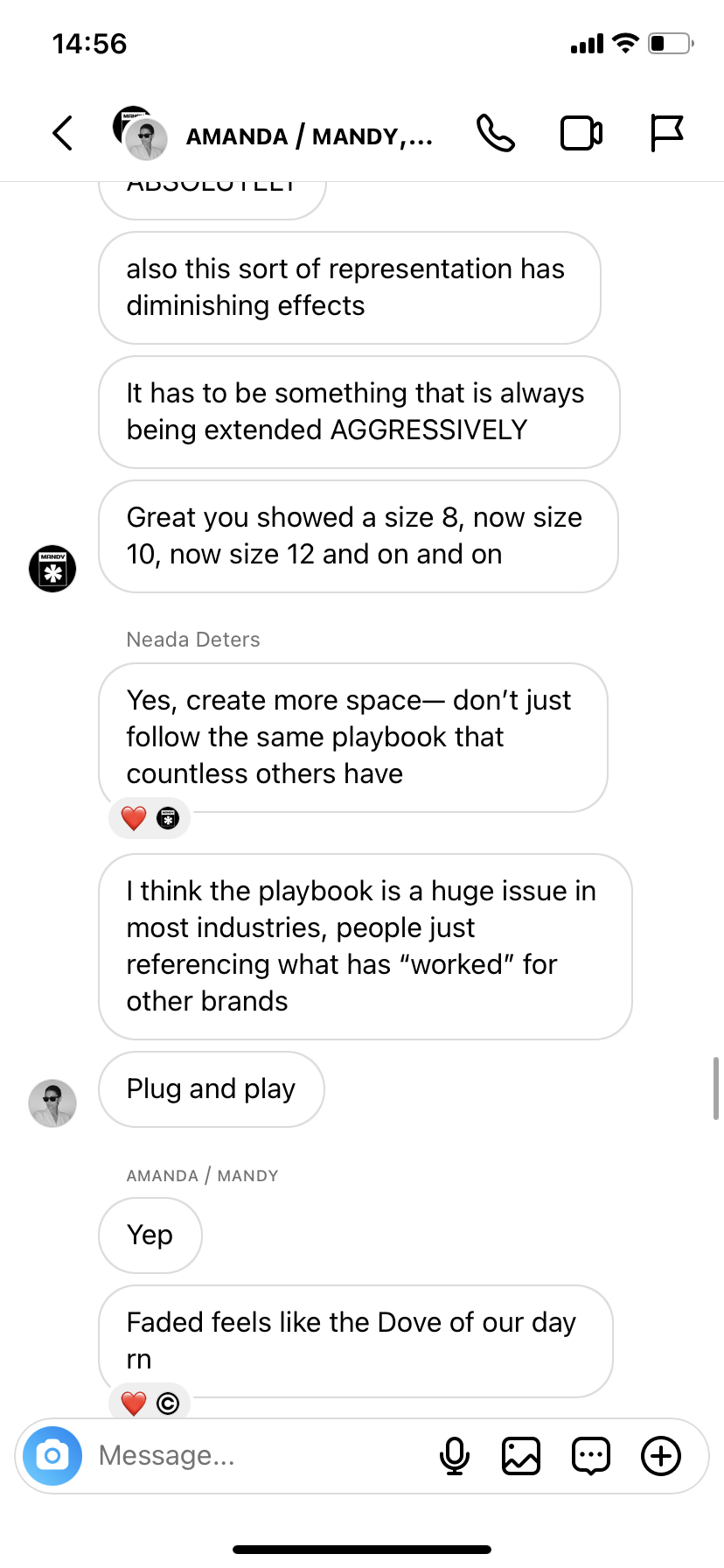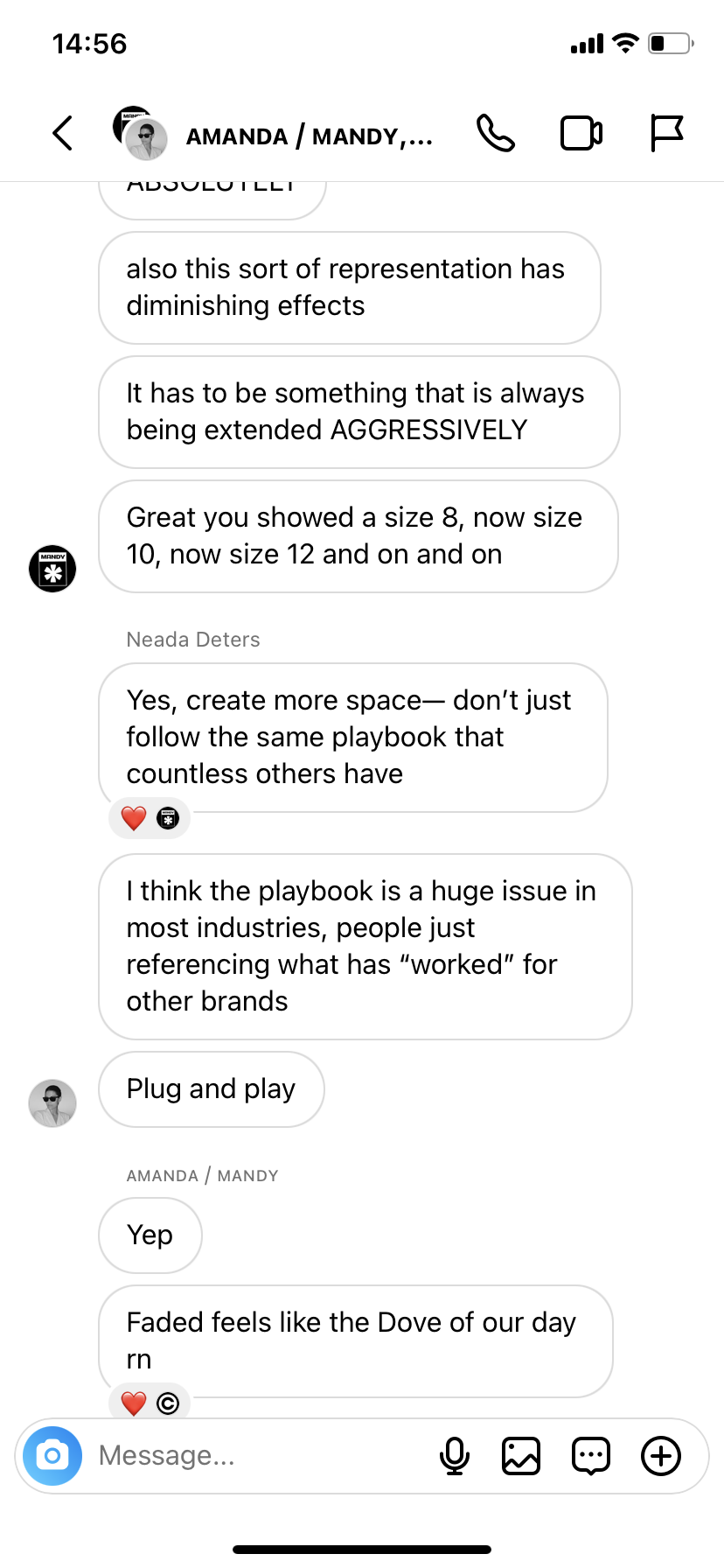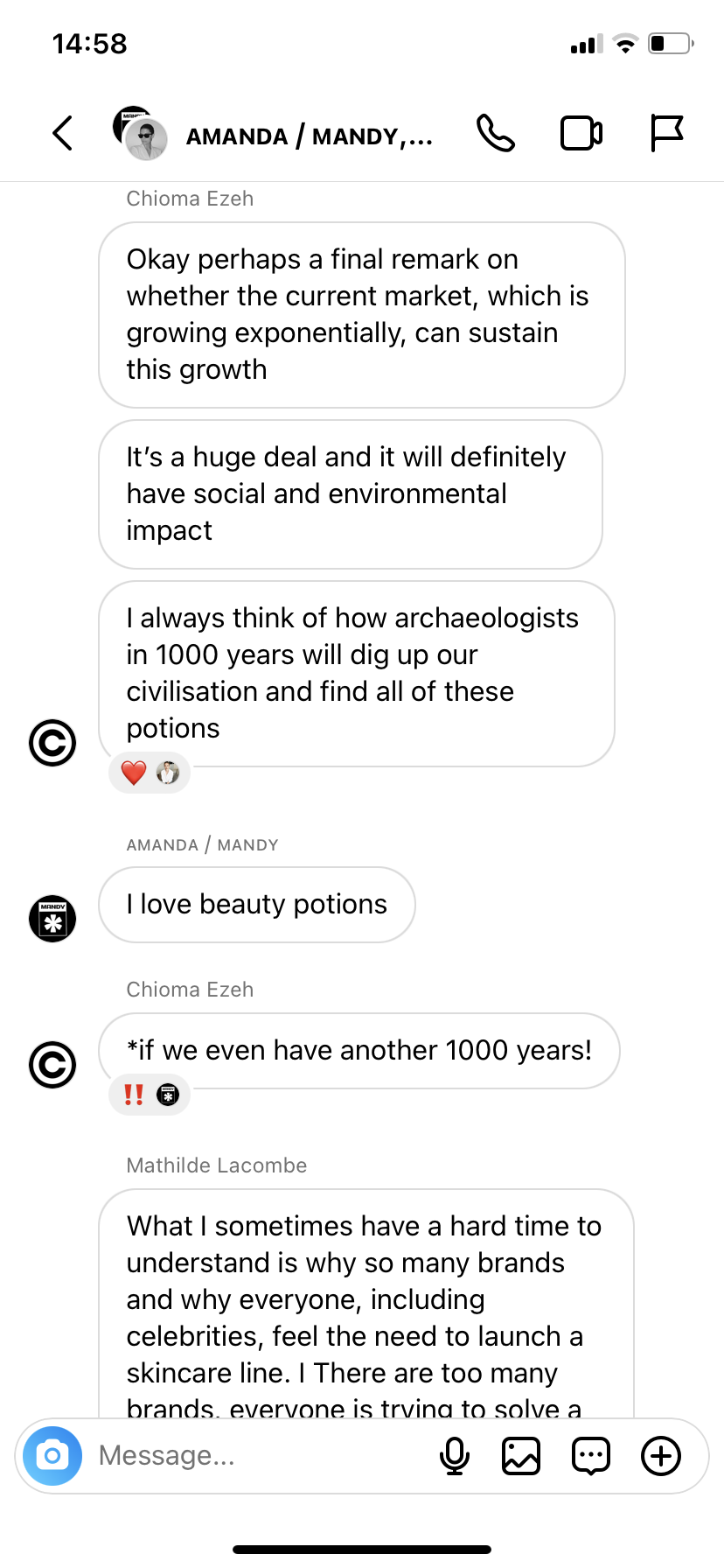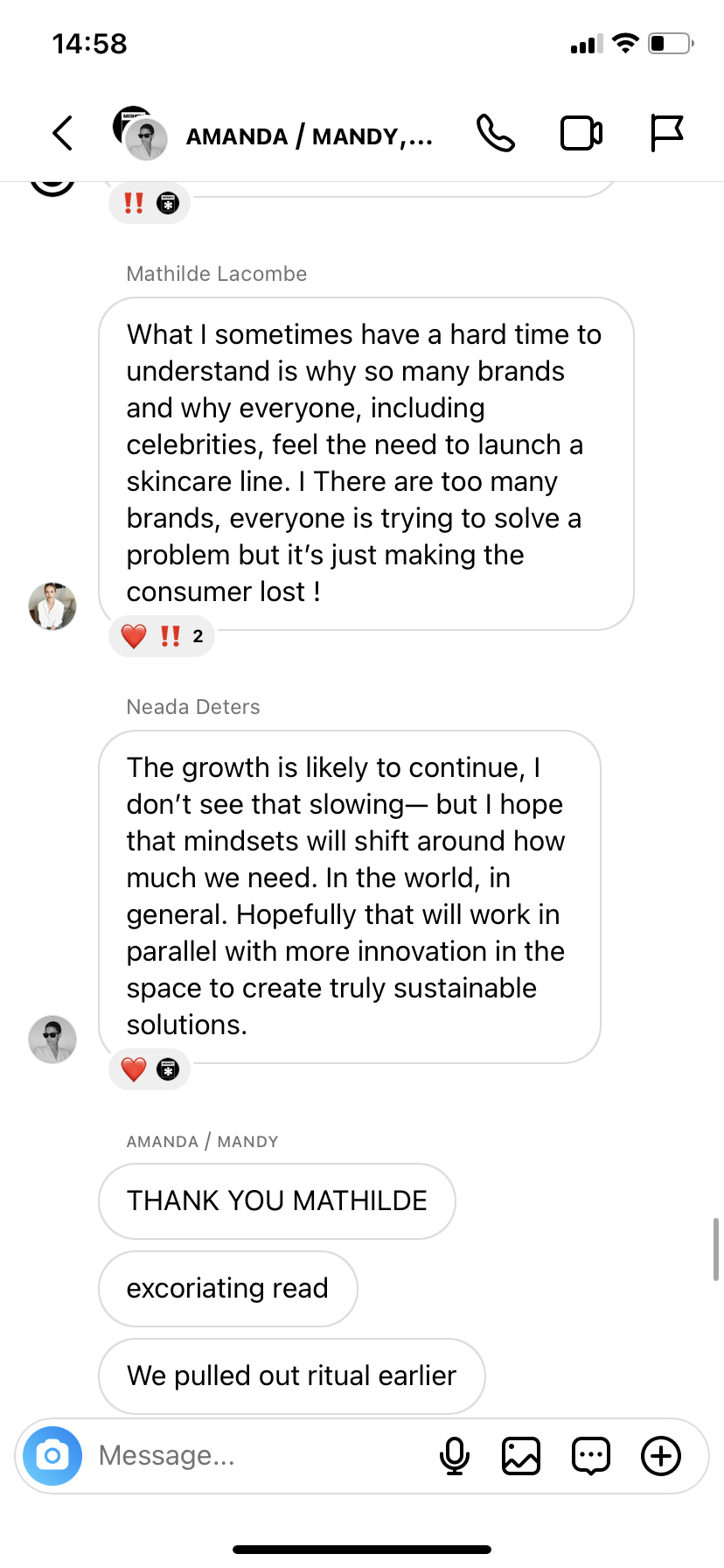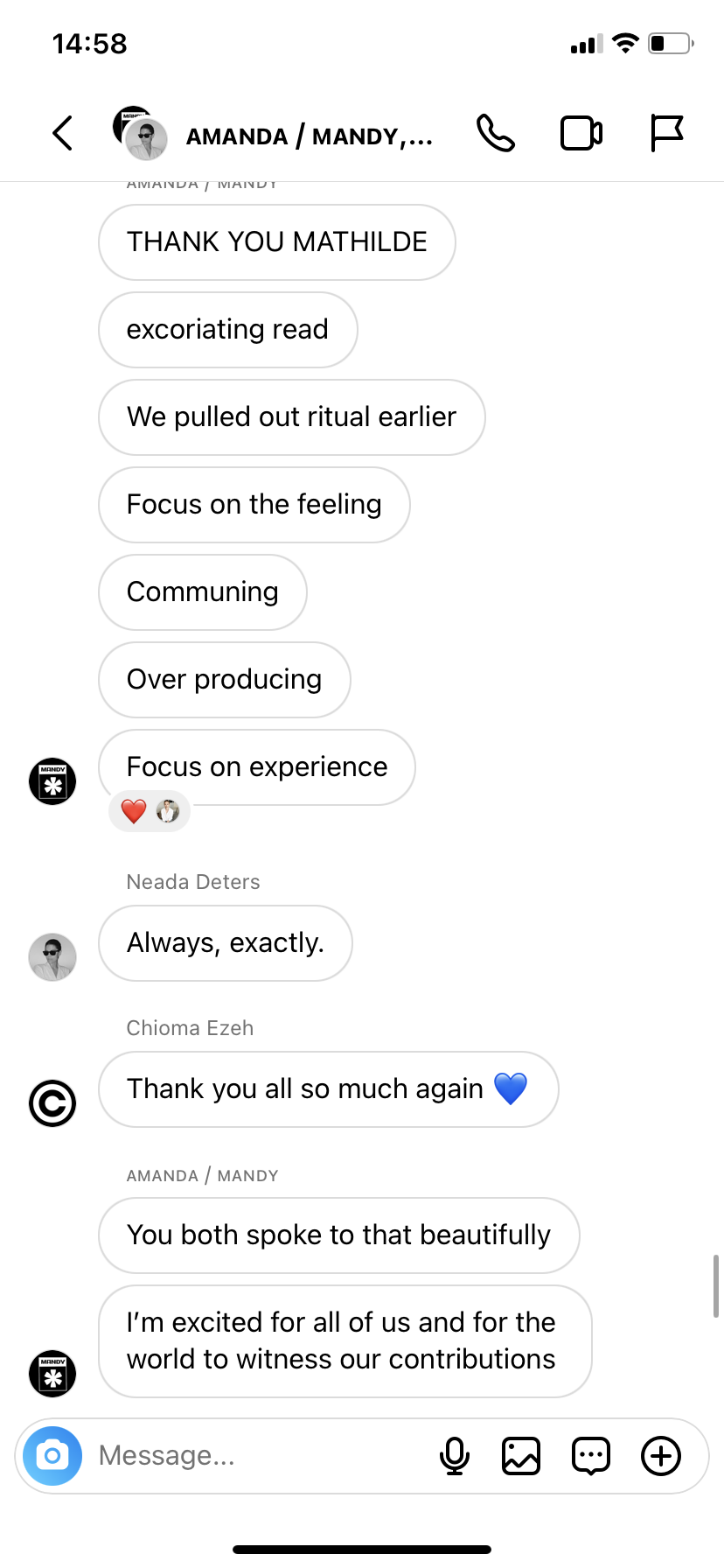Will Natural Beauty Relieve Us of Perfection?
Courtesy of LESSE
Will Natural Beauty Relieve Us of Perfection?
With Mandy Harris Williams, Mathilde Lacombe and Neada Deters
By Chioma Ezeh
“Natural beauty” is an ubiquitous term in the realm of wellness and cosmetics, but its definition eschews a consensus. To a cosmetic scientist it would suggest a reliable, no-frills formulation and matter-of-fact marketing. To an artistic director it would denote carefully styled images of flushed, dewy cheeks, unruly brows, and these days perhaps a peek of a stretch-mark or a silver hair - details that nudge the limits of conventional beauty. As women we know all too well that this laissez-faire aesthetic is a craft that might encompass anything - from risky clinical procedures, to daily skincare rituals, or as marketing would have us believe, nothing at all. This scope of possibility can be both liberating and daunting.
Beauty exists naturally in all of us, but commercially it’s a concept that often excludes. First and foremost by gender.The popularisation of science-forward beauty promised to neutralise the gender bias in beauty advertising by addressing the skin and the body as simply human. But in many ways it has given provenance and legitimacy to the same strategies that drove commercial growth in previous eras when beauty marketing was more gender-specific; Striving for flawless skin by way of glass vials and active ingredients referred to by their scientific name seems far more cerebral and down-to-earth than striving for prettiness. It might encourage us to be more critical of the products available to us and more aware of the many ways that consumer behaviour strips the planet of its natural resources. It might bring some objectivity to the notion of “natural”. But aesthetically, scientific accuracy is unforgiving and demanding. The beauty critic Jessica DeFino once described this shift in perspective as “the medical gaze”, a successor of the male gaze. It brings to mind so many of the limiting and potentially harmful conventions of vanity that have been rewritten with pseudoscientific euphemisms for the modern day: Fasting, detoxing, skin-brightening, etc.
MANDY HARRIS WILLIAMS
Mandy Harris Williams is a multidisciplinary artist, critic, and culture worker from New York City, currently living in Los Angeles. She graduated from Harvard, having studied the History of the African Diaspora, as well as contemporary Black issues. She received her MA in Urban Education and worked as a classroom teacher for 7 years in low-income communities. Mandy critiques popular culture themes of desirability privilege and blackness. For her critical theory and cultural insight she has featured on the 2019 Dazed 100 List, the 2020 Cultured Young Artist's List, and the Huffington Post Culture Shifters List in 2021.
MATHILDE LACOMBE
Mathilde Lacombe is co-Founder of the cult French beauty and wellness brand AIME, which launched in 2018. Previously Beauty Editor of ELLE France, in 2011 she launched Joliebox, the French beauty box subscription company acquired by Birchbox. Prior to launching AIME, she authored a best-selling book, ‘Une Question D’équilibre’ (A Question of Balance: Finding Harmony in Your Professional and Personal Life). AIME is a brand that offers a responsible and approachable philosophy in self-care, with a collection of holistic products dedicated to skin, hair, gut and hormonal health, and a commitment to simple, effective formulas developed with probiotics, essential minerals and natural ingredients.
NEADA DETERS
Neada Deters is a beauty brand founder and former beauty editor based in New York. In 2018, she founded LESSE, a minimalist skincare line that formulates organic, earth-conscious, solutions for common and chronic skin concerns. LESSE aims to simplify skincare rituals with rigorously researched formulas. Deters’ Filipina heritage is what inspires LESSE’s focus on providing efficacious solutions for diverse skin tones and needs.
In this conversation - curated by Chioma Ezeh - three brilliant voices converge in an investigation of how natural beauty represents, unites, and sometimes betrays us as women. Two beauty brand founders explain the contradictions of packing “natural” in a bottle, and a multidisciplinary artist probes into several facets of popular culture that influence our understanding of beauty.
